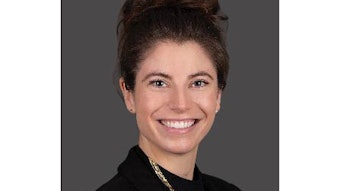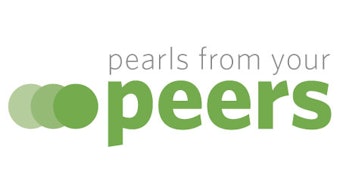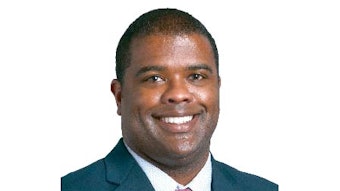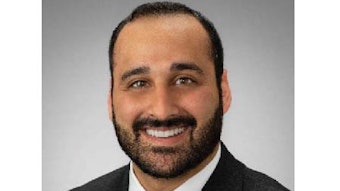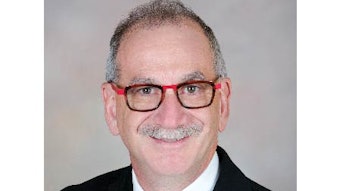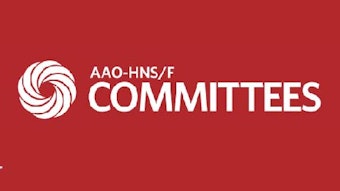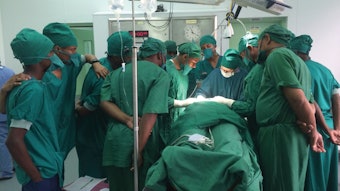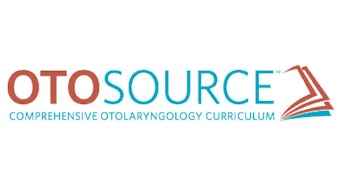Meet the New AAO-HNSF Coordinator for Research and Quality: Vikas Mehta, MD, MPH
“I was originally attracted to the field of otolaryngology because my grandfather was very passionate about cancer care in India,” said Vikas Mehta, MD, MPH.
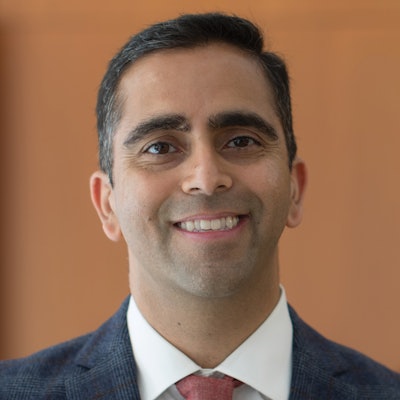 Vikas Mehta, MD, MPH
Vikas Mehta, MD, MPH
“The complexity of the head and neck anatomy, as well as the impact of the disease on the quality of the patients' lives, are what drew me to the field of otolaryngology. It’s a very personal thing; head and neck cancer is intimately involved in our basic functions—what we do when we’re breathing, swallowing, and how we appear to the world.”
Dr. Mehta received his bachelor of science degree in molecular cell biology at the University of California, Berkeley, and his doctor of medicine degree at the University of California, Irvine. He completed an internship in general surgery at St. Vincent’s Catholic Medical Center in New York, a residency in otolaryngology at the New York Eye and Ear Infirmary of Mount Sinai, and a fellowship in head and neck surgical oncology at the University of Pittsburgh Medical Center.
He is currently an associate professor and vice chair of otorhinolaryngology at Montefiore Medical Center/Albert Einstein College of Medicine in the Bronx, New York City. Dr. Mehta is also the quality officer for the Department of Otolaryngology-Head and Neck Surgery and the Montefiore Einstein Cancer Committee. He chaired the AAO-HNS/F Outcomes Research and Evidence-based Medicine (OREBM) Committee for three years and is currently Chair of the AAO-HNSF Head and Neck Surgery Education Committee.
In 2015 he received his master of public health degree from Johns Hopkins University. “I wanted to get my MPH to learn more about how we as physicians could have an impact on not just a single person,” Dr. Mehta explained, “but thinking in terms of public health, learning techniques, and ways to impact health on a larger scale. That’s what made me interested in clinical research, and through that I became involved in the Outcomes Research and Evidence-based Medicine Committee.”
In October 2021 Dr. Mehta began his four-year term as AAO-HNSF Coordinator for Research and Quality. He will coordinate the research and quality/patient safety efforts of the Foundation with particular attention to aligning research, quality, and related education projects with lifelong learning and performance in practice. In his new role, Dr. Mehta will work to expand Phase 2 of the Reg-entSM clinical data registry with a focus on clinical research through data analysis and clinical trials, patient reported outcomes, and Food and Drug Administration (FDA) post-market surveillance.
“Currently, healthcare costs are out of control,” he said, “and we really need to do better for our patients and for society as a whole. We need to incorporate data-driven solutions to better understand how we can continue providing the superb otolaryngology care that is being given in both private practice and academic settings in a way that’s evidence-based and cost effective. There’s so much knowledge, so much innovation happening; to capture it, we need to leverage the ‘Big Data’ that’s out there.
“Value-based care models on the federal and private levels are on the horizon and to be involved in that conversation means that we have to have the data from our specialty to understand what value means for our patients. We have to study and understand that [value], but we can’t without the data. And if we as physicians don’t lead this, someone is going to do it for us.”
Reg-ent was developed to be an otolaryngology-specific clinical data registry that helps practices improve and advance patient care through:
• Safeguarding the role of otolaryngologist-head and neck surgeons in defining optimal care
• Demonstrating the value of services provided by otolaryngologist-head and neck surgeons in all iterations of future payment models and providing the opportunity for participation in future private payer quality programs
• Serving as the first national data repository of otolaryngology specific data that can be mined for research and quality improvement purposes
• Helping define and develop specialty-specific quality measures
• Serving as a source of data for the development of AAO-HNSF Clinical Practice Guidelines
Dr. Mehta noted that otolaryngology is not the first specialty to use data analytics to help improve care. “One of the first examples was cardiac surgery; they set a metric establishing 30-day mortality. At first, people were skeptical, they were not happy about having to measure it, but it led to a lot of innovation and improvements in safety and quality in cardiac surgery, making it much safer than it was. I think that was a big 'aha' moment. Similar measures have been utilized in orthopedic surgery with significant improvement in patient outcomes. However, the key is having physician-driven initiatives to facilitate the adoption of clinically meaningful metrics that truly improve care for patients while avoiding those metrics that are irrelevant or simply focused on limiting care.”
According to Dr. Mehta, approximately 1,700 otolaryngologists and 1,200 audiologists currently participate in Reg-ent and while he feels this has been a good start, the program needs to be expanded in order for the data to accurately represent the majority of the specialty. “Right now, our big focus is not only on enrolling private practitioners who benefit from Merit-based Incentive Payment System (MIPS) reporting, but also enrolling academic centers to provide patient data.
“Our major goals over the next few years are, first, to expand the registry and get as many people to sign up as possible—people from all across the United States serving all populations, academic centers, community hospitals, private practices in rural as well as urban areas—because the richness of the data will come from the ubiquity and variety of [the data] we receive. If you don’t have real-world data, it’s hard to say what is applicable to patients of [a certain] type. We understand that diversity and inclusion are important because getting a diverse group of patients will allow us to establish data points, results, and recommendations that are driven by a true representation of the population.
“The second goal is to figure out a streamlined way for us to ask the right questions, questions that are important for our members, and to provide answers and research that provide true value for ourselves as well as our patients. We will then have a data repository on which to do research evaluating real-world outcomes. Of course, as the process matures it will keep getting better and better.”
The Coordinator for Research and Quality is a member of the Reg-ent Executive Committee (REC) and chairs the Reg-ent Research Advisory Group (RRAG). Dr. Mehta will work with REC, RRAG, OREBM Committee, Patient Safety and Quality Improvement Committee, Guideline Task Force, and CORE grants leadership to facilitate AAO-HNSF research and quality efforts. Additionally, he will serve as the Board liaison to selected research-related committees and will make committee appointment recommendations to the AAO-HNS/F President-elect.
In working with the groups and committees mentioned above, Dr. Mehta sees his primary role as one of listener. “It’s a group of many brilliant people,” he explained, “and it’s a lot of fun to interact with them and see where their priorities are because they represent the interests of our membership. It’s a matter of streamlining, coordinating, and prioritizing all of their ideas.
“By contributing data, physicians have a unique opportunity to participate, guide and impact the national dialogue on quality and value-based care. The challenge will be defining what is ‘quality’ and what is ‘value,’ and it will be very important for our physicians to feel that they have buy-in and have contributed to that data-driven process. Then, we can take those answers to Washington and to the insurance carriers and say, ‘Look, we’re providing valuable care to patients, and we need to be reimbursed in a way that makes sense.’ Having data that adequately represents the excellent care that is being delivered by otolaryngologists across the United States in rural and urban settings, in diverse communities, and in private-practices and tertiary-care academic centers will be the key to understanding and defining those measures.”



